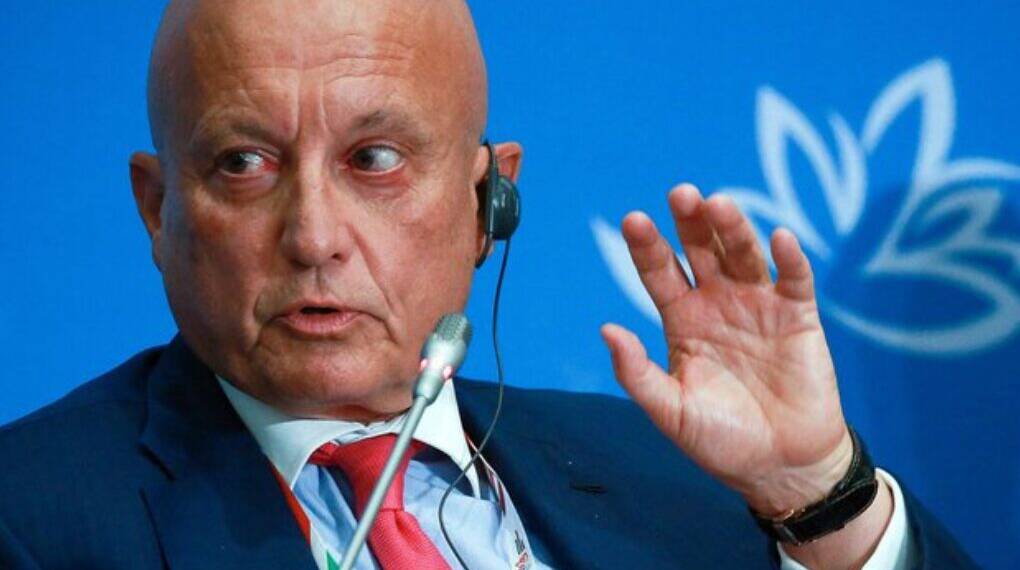On 30 October 2025, the Italian German outlet Multipolar published a lengthy interview with Sergei Karaganov, one of the most prominent and long-standing voices in Russian foreign-policy thinking. Karaganov, a former advisor to both Yeltsin and Putin, dean emeritus of the Higher School of Economics, and a permanent member of the Valdai Discussion Club, is not a marginal figure.
For decades, he has sat on the Foreign and Defense Policy Council, an unofficial but highly influential body that brings together Russia’s political, military, and intelligence elite.
What makes this interview extraordinary—and deeply alarming—is Karaganov’s explicit contention that a nuclear exchange between Russia and Europe has become “inevitable” unless the West radically changes course.
Even more strikingly, he claims that his views are shared by “95 % of the Russian military and political leadership” and that President Putin himself is now seen by many in the elite as excessively moderate toward the West.
The Core Thesis: Restoring the “Fear of Nuclear War”
Karaganov’s central argument is that Europe has fallen into “strategic parasitism.” For seventy years, he says, the fear of mutual nuclear annihilation kept the continent unusually peaceful. With the end of the bipolar world and the apparent decline of Russia’s conventional capabilities relative to NATO, Europeans have lost that existential fear and are once again behaving aggressively—sanctions, arms deliveries to Ukraine, long-range missiles, even discussions of NATO troops on Ukrainian soil.
His proposed remedy is chillingly straightforward: Russia must deliberately restore the fear of nuclear war in European minds. Not necessarily by launching an all-out strategic exchange, but by re-establishing credible nuclear deterrence, including, if necessary, a limited demonstration strike on European territory.
When pressed by the interviewer on how Russia could strike a “limited target” in Europe without triggering full NATO retaliation, Karaganov does not name specific cities, but the implication is clear: a single, carefully calibrated nuclear detonation—perhaps on a military target or even an unpopulated area—could serve as the needed “wake-up call.”
Four Reasons Why Nuclear Danger is at Cold-War Levels
Karaganov lists four structural reasons why the risk of nuclear war is now as high as in the late 1950s (outside the Cuban Missile Crisis itself):
The fastest shift in the global balance of power in history—toward China, India, and the Global South, and away from the West.
The collapse of any shared moral framework in international relations.
A “desperate counterattack” by a West that is losing its 500-year dominance and refuses to accept decline gracefully.
The “monstrous intellectual and moral degradation” of Western elites.
In this environment, he argues, miscalculation becomes almost inevitable.
Europe as the Main Threat
One of the most provocative passages is Karaganov’s portrayal of Europe—not the United States—as the primary source of danger. Historically, he says, Europe has been the cradle of colonialism, racism, and the two world wars. After 1945, it was pacified only by the bipolar standoff and American protection. Now, freed from both Soviet and (in relative terms) American restraint, Europe is reverting to its aggressive traditions while hiding behind NATO’s nuclear umbrella.
Russia, in his view, must therefore focus its deterrence efforts on European capitals rather than Washington.
Domestic Pressure on Putin
Perhaps the most politically explosive claim is that Putin is now under massive internal pressure from the security establishment. Karaganov openly states that a large part of the Russian elite regards the president’s continuing hope for some kind of negotiated co-existence with the West as naïve.
The interview thus serves as a public signal: if the war in Ukraine drags on without a decisive Russian victory, or if the West continues escalating, the next Russian leader—or the siloviki acting behind the scenes—may adopt a far more confrontational, even apocalyptic, posture.
From Deterrence to Coercion: The Siberian Pivot
Karaganov does not limit himself to nuclear theology. He repeats his long-standing call for Russia to emotionally and economically “turn its back” on Europe and reorient toward Siberia, the Arctic, and Asia. Europe, he says, is doomed to decline and irrelevance; Russia’s future lies in the development of its eastern territories and partnerships with China, India, and the Islamic world.
A Warning or a Threat?
Karaganov presents his position as a sober, even humanitarian warning: the only way to prevent a large-scale nuclear war is to make Europeans once again fear a small one. Yet the interview can equally be read as the intellectual justification for a policy of nuclear coercion—and possibly as preparation of Russian and international opinion for steps that would bring the world closer to the brink than at any time since 1962.
Whether Karaganov is describing an existing consensus inside the Russian security elite or trying to manufacture one, his words cannot be dismissed as the ravings of an outsider. They come from a man who has spent forty years at the heart of Russian strategic thought and who still moves in the same corridors as the people who control Russia’s nuclear arsenal.
In an era when Western leaders increasingly speak of “victory” in Ukraine and of “strategic defeat” of Russia, Karaganov’s interview is a stark reminder of what some of the most influential voices in Moscow now believe that defeat would actually mean—not conventional capitulation, but the end of the nuclear taboo that has kept Europe alive for three generations.








